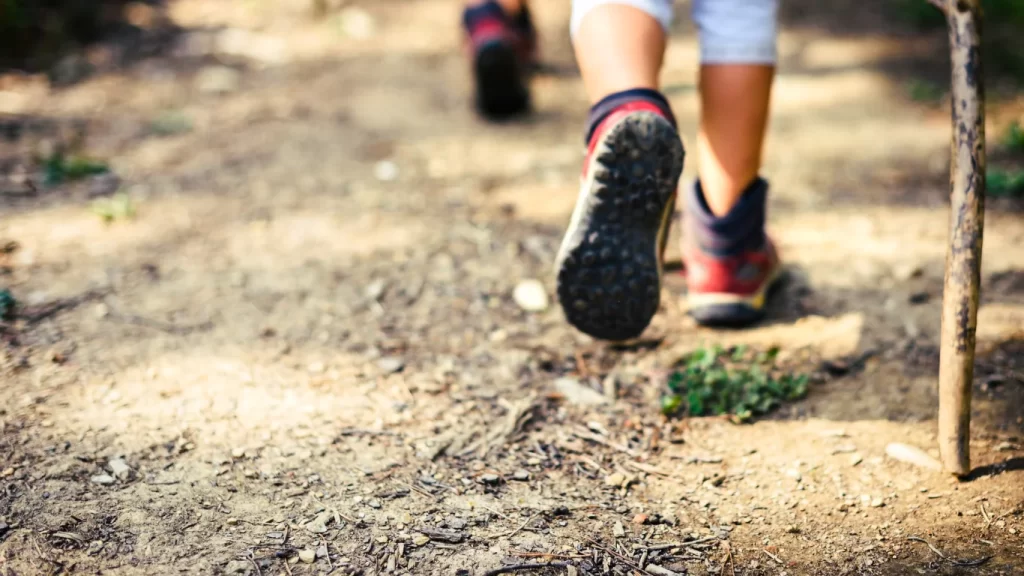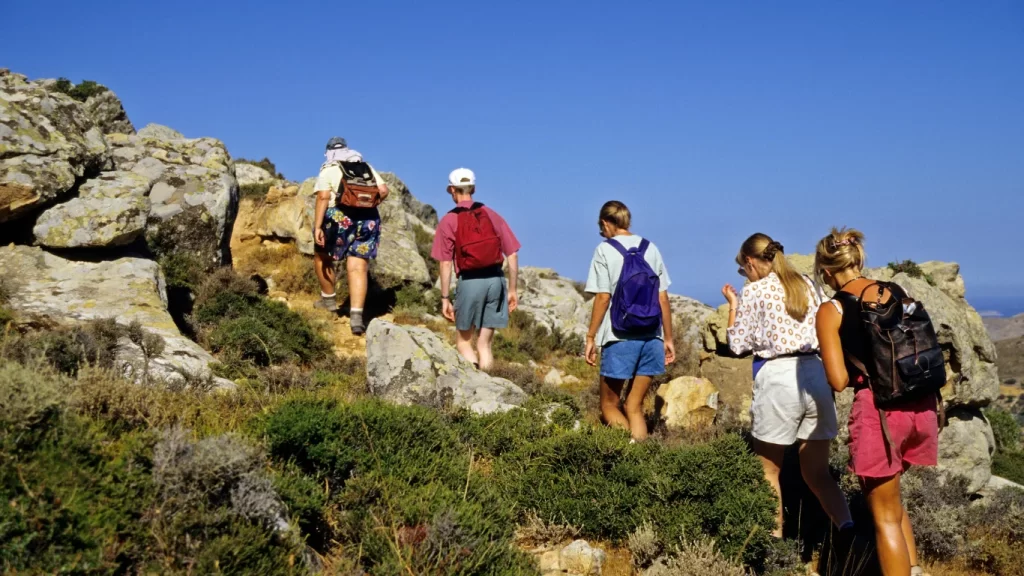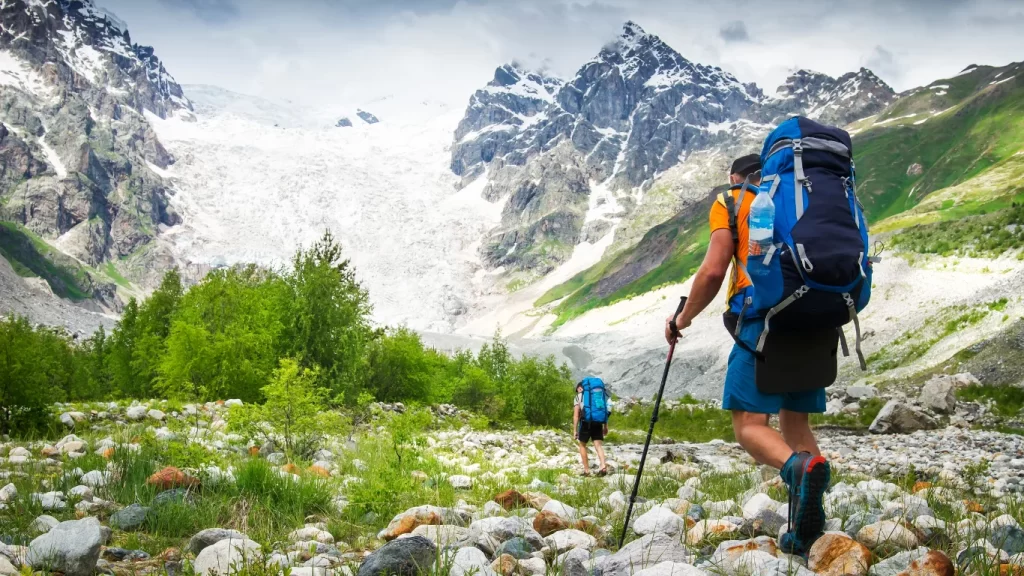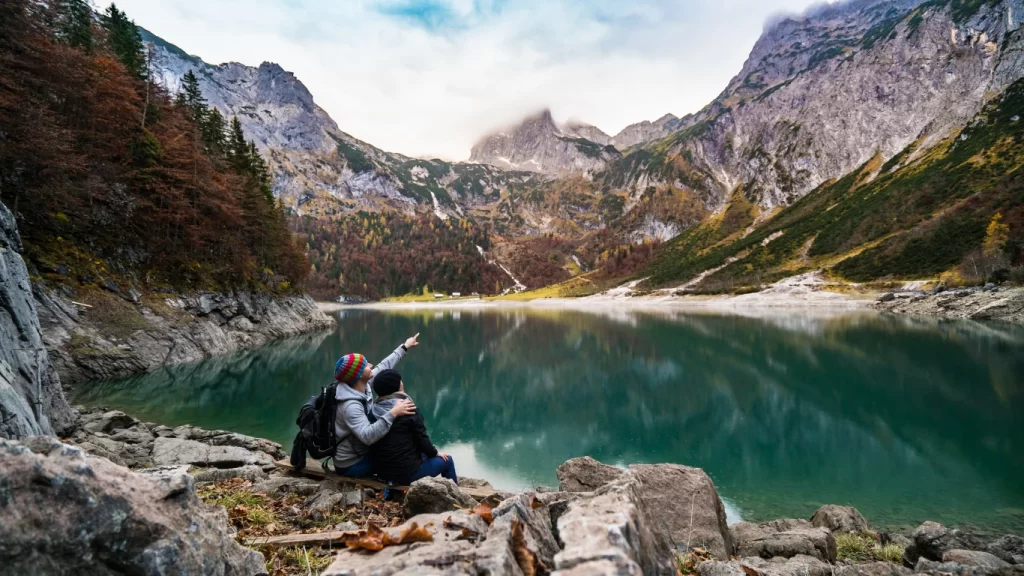In the rapidly expanding world of outdoor recreation, Leave No Trace Hiking has emerged as a vital framework for preserving the natural beauty and integrity of wilderness areas. Integrating responsible hiking practices with a deep respect for nature, Leave No Trace Hiking not only enhances a hiker’s experience but also plays a crucial role in protecting hiking trails and minimizing the ecological footprint left behind. The importance of adopting eco-friendly hiking tips cannot be overstated, as they ensure that the pristine environments we cherish today remain intact for future generations to enjoy.
This article covers the critical aspects of Leave No Trace principles. It’s perfect for beginners who are excited to start hiking sustainably. The article looks at the seven principles of Leave No Trace and explains why they’re so crucial for preserving the environment and upholding hiking ethics.
You’ll also find some practical and eco-friendly hiking tips for minimizing your impact while hiking. This will give you the knowledge you need to help protect nature while enjoying the great outdoors. By following these green hiking tips, you’ll make a real difference in preserving natural habitats and ensuring the future of our planet’s precious ecosystems.
Related: Find out the most beautiful trails you can find in the world in our article here.
What is Leave No Trace Hiking?

Leave No Trace refers to a set of principles designed to guide outdoor enthusiasts in practising minimum impact on natural environments. Developed in the 1960s by the US Forest Service, these principles have evolved into a comprehensive framework that applies not only to remote wilderness areas but also to local parks and backyards. The core idea is to leave nature as undisturbed by human presence as possible, ensuring that it remains pristine for future generations.
The Seven Principles of Leave No Trace provide detailed guidance on minimizing one’s ecological footprint while enjoying the outdoors. These principles cover various aspects of outdoor activity, from planning and preparation to wildlife respect and waste disposal. They are continually updated with input from biologists, land managers, and educators to stay relevant to the latest environmental conservation strategies.
By complying to these principles, individuals can greatly contribute to the sustainability of natural areas, preserving their beauty and biodiversity for years to come. This approach not only enhances the outdoor experience for all visitors but also instils a profound respect for the natural world.
The Seven Principles of Leave No Trace

- Plan and Prepare: This principle emphasizes the importance of preparation to minimize impact. Know the regulations, prepare for weather and emergencies, and avoid high-use times. Repackage food to reduce waste and use navigation tools to avoid marking natural features.
- Travel and Camp on Durable Surfaces: Stick to established trails and campsites. In pristine and clean areas, avoid use to prevent the creating new trails and campsites. Always camp at least 200 feet from water sources to protect riparian areas.
- Dispose of Waste Properly: Clean up all the trash, leftover food, and litter. Utilize catholes for human waste, dug 6 to 8 inches deep and also at least 200 feet away from water, trails, and camps. Pack out toilet paper and hygiene products.
- Leave What You Find: Preserve the natural environment. Avoid touching cultural or historic structures and artifacts. Please leave rocks, plants, and also other natural objects as you find them.
- Minimize Campfire Impacts: Be sure to use a lightweight stove for cooking and also enjoy a candle lantern for light. If there are fires are permitted, use established fire rings and keep fires small. Burn all wood to ash and make sure fires are completely extinguished.
- Respect Wildlife: Be sure to observe wildlife from a distance and never feed them. Store your food and trash securely. Avoid wildlife during sensitive times such as nesting or mating.
- Be Considerate of Other Visitors: Please respect other visitors and also protect the quality of their experience. Be courteous on the trail and keep noise levels down to let nature’s sounds prevail.
Why Practicing Leave No Trace is Important

Practising Leave No Trace is crucial for maintaining the integrity and beauty of natural landscapes. As more individuals engage in outdoor activities, the impact on wilderness areas increases, manifesting in overcrowded trails, environmental damage, and litter. The principles of Leave No Trace offer a framework that empowers everyone, from experienced outdoors people to beginners, to minimize their ecological footprint. This approach is vital in ensuring that nature remains accessible and enjoyable for all.
The principles are designed to be applicable in various settings, from remote wilderness to local parks and even in backyards, making them versatile and universally relevant. They are continually refined with insights from biologists and land managers to stay current with conservation strategies. By adopting these principles, individuals contribute to preserving the natural environment’s beauty and biodiversity, ensuring it remains pristine for future generations.
Moreover, as the outdoor community grows, sharing knowledge about Leave No Trace becomes essential. Educating others, whether through personal interaction or social media, helps spread responsible practices that protect our natural resources. This collective effort is crucial for the sustainability of our cherished outdoor spaces.
Tips for Responsible Hiking

Educate Yourself and Others
Education plays a pivotal role in responsible hiking. By understanding the Leave No Trace principles and their practical applications, hikers can significantly reduce their environmental impact. It is vital to learn and share knowledge about minimizing traces in nature, from proper waste disposal to respecting wildlife. Engaging in educational programs or accessing resources from the Leave No Trace Center for Outdoor Ethics can empower individuals and communities to act as stewards of the environment.
Carry the Right Gear
Equipping oneself with the appropriate gear is crucial for minimizing impact on the outdoors. This includes using durable, eco-friendly equipment and reducing waste by repackaging food. Carrying essentials like water filters, eco-friendly soaps, and adequate trash bags helps ensure that hikers can manage their needs without harming the environment.
Adopt a ‘Pack It In, Pack It Out’ Mindset
Adhering to a strict ‘Pack It In, Pack It Out’ philosophy is fundamental. All trash, including biodegradable items such as food scraps and hygiene products, should be carried out of natural areas to prevent contamination and protect wildlife. This practice helps maintain the natural beauty and cleanliness of outdoor spaces.
Respect Wildlife
Maintaining a respectful distance from wildlife is essential for their protection and your safety. Feeding animals or disrupting their natural behaviours can have detrimental effects on ecological balance. By observing wildlife from a distance and storing food securely, hikers can avoid negative interactions and support the health of the ecosystem.
Practice Trail Etiquette
Trail etiquette is vital for a harmonious outdoor experience. This includes yielding to other hikers, keeping noise levels low, and staying on designated trails to avoid damaging the environment. Being considerate of others helps ensure that everyone can enjoy the serenity and the sheer beauty of nature without undue disturbance.
Conclusion
Embarking on Leave No Trace hiking is about more than just showing respect for nature; it’s a heartfelt commitment to preserving the beauty and integrity of the wilderness for generations to come. Throughout this guide, we’ve delved into the core principles of Leave No Trace, from planning and preparation to the importance of respecting wildlife and minimizing campfire impacts. These guidelines not only enhance the outdoor experience for hikers but also ensure the protection and sustainability of natural habitats. By embracing these practices, individuals can make a meaningful contribution to conservation efforts that keep our planet’s ecosystems vibrant and healthy.
The journey of practising Leave No Trace doesn’t end once you leave the trail; it continues with spreading awareness and educating others about sustainable outdoor ethics. As the outdoor community grows, so does the responsibility to share and implement these principles in all-natural spaces, whether it’s a local park or a remote wilderness area. By embodying the values of Leave No Trace in our adventures, we cultivate a culture of responsibility, respect, and reverence for the natural world. This legacy will allow future generations to experience the profound beauty and serenity of the untouched outdoors.
FAQs
What is the correct way to hike without leaving a trace?
To hike without leaving a trace, adhere to the following seven principles:
Plan Ahead and Prepare.
Travel and Camp on Durable Surfaces.
Dispose of Waste Properly.
Leave What You Find.
Minimize Campfire Impacts.
Respect Wildlife.
Be Considerate of Others.
Can you list the seven principles of Leave No Trace?
Yes, the seven principles of Leave No Trace are:
Travel and camp on durable surfaces.
Dispose of waste properly.
Leave what you find.
Minimize campfire impacts (be careful with fire).
Plan Ahead and Prepare.
Respect Wildlife.
Be Considerate of Other Visitors.
What is the Leave No Trace program?
The Leave No Trace program promotes outdoor conservation through ethical guidelines. It originated in the mid-20th century in the United States as a response to ecological damage caused by wilderness recreation. It is often abbreviated as LNT.





